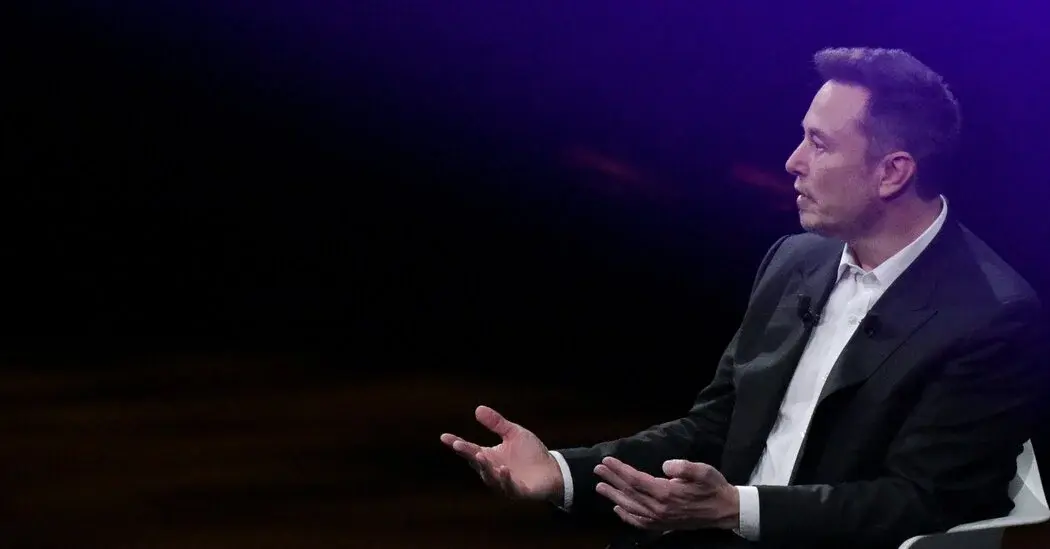NYT gift article expires in 30 days.

I sort of wonder who is the target audience of these kind of articles. Anyone with access to a reasonable level of critical thinking has likely already come to this conclusion. Like, do we really think we’re speaking to this flock of acolytes with these? Like Trump, hasn’t he largely alienated a massive number of people who will never see him as a positive figure again? We’re all very ready to believe Musk is an anti-semite of the type described like Jean-Paul Sartre, and it’s absolutely because of years of bad behavior on his part leading to this. It’s transparent that the only free speech he cares about is his own, so who are these articles really written for?
Anyone with access to a reasonable level of critical thinking
aaaand you’ve just excluded about half of the planet, possibly more…
The overwhelming majority of humans on the planet do not have sufficient critical thinking skills
And everyone who does have sufficient critical thinking skills use them only when they are made aware that they need to use them, which is the minority of the time.
If nobody wrote these articles you’d be going “why does no one report on his anti-semitism/acknowledge it?” That’s not a dig, mind you. You’d be right to ask that question.
FWIW, check out the article’s comments section.
Journalists trying to convince each other that they can convince the world to stop bad actors.
But most of us are just trying to keep our heads down to survive, and a large minority is actively engaged in supporting authoritarianism. So it’s all very performative.
deleted by creator
Yes! Exactly, is there anyone in the readership of this paper who would still be on the fence about Musk at this point?
Why does this article exist?

“Who could possibly be responsible for the catastrophic loss of value of one of the Internet’s most beloved brands? Could it be me, the owner, and the decisions I’ve made?”
“No. The Jews are responsible.”
🤖 I’m a bot that provides automatic summaries for articles:
Click here to see the summary
He declared himself “against anti-Semitism of any kind” — though his claims of the A.D.L.’s immense power tapped into classic antisemitic tropes — but “pro free speech.”
As my friends at the Foundation for Individual Rights and Expression (where I used to serve as president) have detailed, he has used his authority to suspend accounts, to throttle (or limit the traffic of) competitors and reportedly to boost his own voice.
Under the pay-to-play system, the people who fork over a monthly fee to join X’s premium service have their reach substantially extended, including by being granted “prioritized rankings in conversations and search.” And because Musk has centered himself in the platform’s public image, a disproportionate number of these premium accounts seem to share Musk’s trollish right-wing persona and create the unmistakable sense that X is becoming dominated by far-right voices that often revel in cruelty, bigotry and misinformation.
As Berlinski details in her newsletter, when he “calls attention” to other accounts by liking, responding or retweeting, “he makes them famous, immediately.
One of the most significant Supreme Court cases demonstrating the reach of American free speech law is National Socialist Party of America v. Village of Skokie.
The Supreme Court upheld the First Amendment rights of Nazis who sought to march through the heavily Jewish village of Skokie, Ill.
Saved 80% of original text.
Ya, this is stuff we already know, isn’t it? Like, it’s just common knowledge
Summary and Key Moments
Courtesy of Kagi Universal Summarizer:
Elon Musk’s ownership of Twitter has coincided with a surge in antisemitic speech on the platform. After the ADL met with Twitter executives, hashtags calling to ban the ADL emerged and Musk engaged in an online campaign against them. He blamed the ADL for Twitter’s loss in revenue and called them the biggest generator of antisemitism. His criticism echoed antisemitic tropes but he claimed to be for free speech. However, Musk uses Twitter more as a platform for his own speech where he can boost accounts he likes and throttle competitors. Premium users who pay more also see their tweets prioritized, skewing discussions right-wing. While a truly free speech platform would tolerate abhorrent ideas, Musk’s actions in threatening critics and amplifying certain voices shows he is using his power more to privilege voices close to his own views rather than promote liberty of discussion.
-
Elon Musk’s ownership of Twitter has led to a surge in antisemitic speech on the platform, sparked in part by Musk’s criticism of the Anti-Defamation League.
-
Musk endorsed posts criticizing the ADL and started his own campaign against the organization, accusing it of being the biggest generator of antisemitism on Twitter.
-
Musk’s criticism of the ADL tapped into classic antisemitic tropes while claiming to be against antisemitism.
-
Musk portrays himself as a free speech absolutist but has used his authority on Twitter to suspend accounts and throttle competitors.
-
Twitter under Musk has become a “pay-to-play” system where privileged accounts can boost their reach by paying a monthly fee.
-
Far-right voices that engage in cruelty, bigotry and misinformation seem to dominate the platform.
-
Musk’s own endorsements and responses on Twitter can instantly direct massive attention to certain accounts.
-
Twitter resembles Musk’s “playpen” more than a free speech paradise, with Musk’s values shaping the platform.
-
Merely tolerating abhorrent speech is different than agreeing with or amplifying it, which Musk has done.
-
Musk’s invocation of free speech is disingenuous, as he uses his power to privilege certain voices over others.
-









